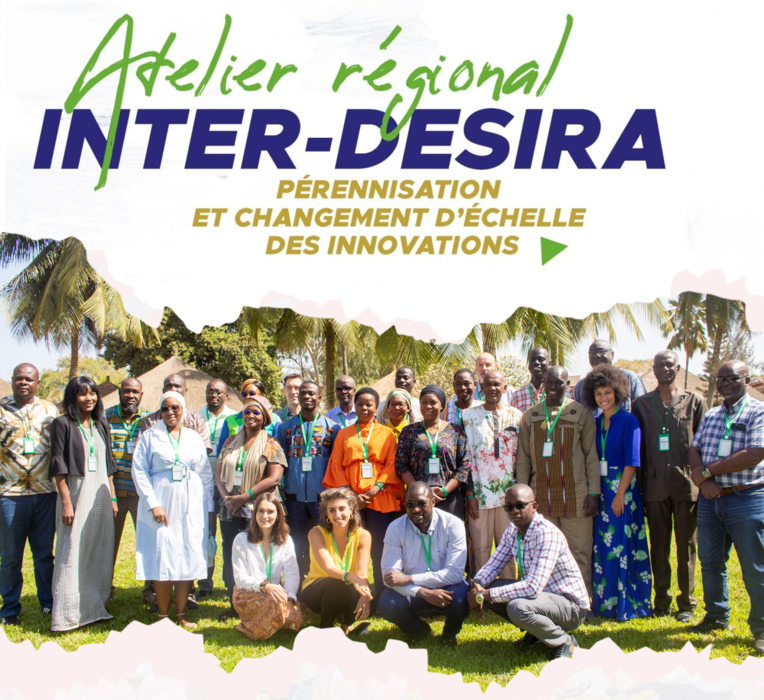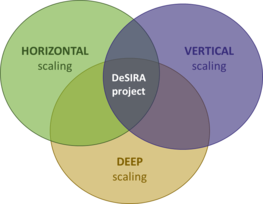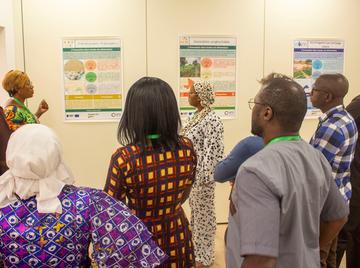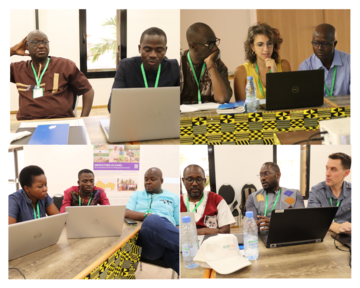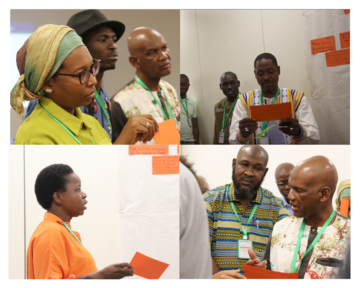Regional inter-DeSIRA workshop on the innovations sustaining and scaling processes
Scoping
Since the DeSIRA projects concerned are almost all in the final phase of their agenda, this third regional workshop on capitalisation will be aimed at developing the discussions launched, focusing on success stories. Concentrating on promising innovations will help to analyse which sustainability strategies are implemented by the projects to maintain over time the changes they deliver (i) and the scaling strategies deployed (ii).
To do so, DISSEM-INN will use the analytical framework developed by Moore et al. (2015)¹, which distinguishes three methods of dissemination: horizontal (replication to broader areas and populations), vertical (conducive institutional change) and deep (changes in systems of representation and practices).
These internal discussions conducted between DeSIRA focal points will thus help to establish new knowledge and to consolidate previous findings, with a view to drawing the lessons that will be presented during the final summary workshop.
This workshop is in line with achieving the second outcome targeted by the DISSEM-INN project, in other words ensuring that “discussions are launched at the regional level to identify advocacy options for scaling the innovations of the DeSIRA projects concerned”.
¹ MOORE M.-L., RIDDELL D., VOCISANO D., 2015, Scaling out, scaling up, scaling deep: strategies of non-profits in advancing systemic social innovation, Journal of Corporate Citizenship, n° 58, p. 67-84.
Course
This three-day regional DISSEM-INN workshop was based mainly on presentations, scientific posters, group work and plenary discussions (see TDR).
The first day was devoted to discovering the sixteen innovations developed by each DeSIRA project.
Through a "Panorama of Innovations", based on posters prepared by DISSEM-INN, the focal points shared their advances in the technical, organizational and socio-cultural dimensions. Then, they explored these dimensions in greater depth, reflecting on their degree of novelty, i.e., whether the innovation in question brings an incremental or a major change with what was done before.
The second day enabled participants to familiarize themselves with an analytical framework proposed by DISSEM-INN regarding the sustainability and scaling of innovations. Group work focused on connecting the framework with the participants' experience within their respective projects, and included a presentation of the results. This framework was then used by each project team to analyse the degree of advancement in making these innovations sustainable. Discussions also focused on practices that could ensure or reinforce sustainability.
Finally, the last day enabled all participants to experiment with the analytical framework on the scaling of the innovations, working again in project teams and sharing results. This enabled them to identify key messages on the links between the various dimensions of innovation and methods of dissemination, underlining the significant contribution of this analytical approach in terms of impact for their projects and for setting up future projects.

